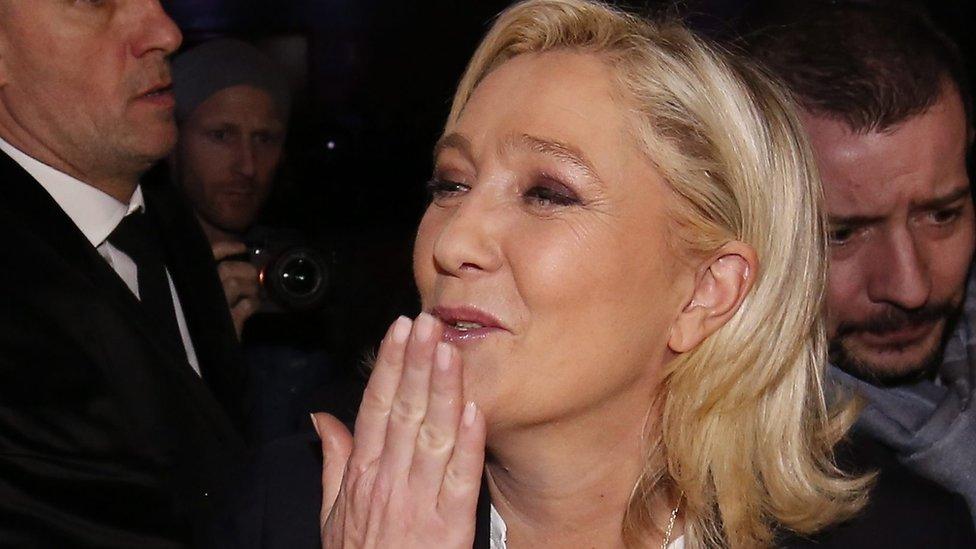French press sees parties in meltdown after FN victory
- Published
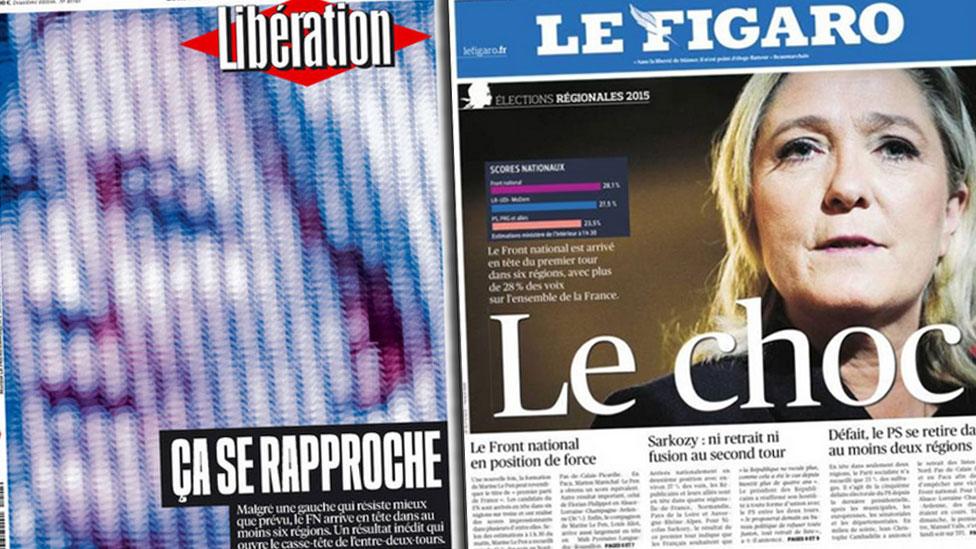
Le Figaro's headline expresses 'shock' at the result of the poll
The French press sees the apparent victory of the far-right National Front (FN) in the first round of regional elections as a disaster for the traditional parties, both left and centre-right.
Centre-right daily Le Figaro says that the result represents a "bitter failure" for both left and right, but is one that they should have seen coming.
Editor-in-chief Alexis Brezet says that the wave of public anger that has put an election victory within the FN's grasp has been spurred on by "thirty years of public powerlessness and government failures, external" and that a vote for the FN is simply "the most spectacular expression" of this anger.
Mr Brezet says that all France's leaders since Francois Mitterrand have contributed to this gathering wave of anger, but that "it is Francoise Hollande to whom posterity will accord the sad privilege of having made it explode".
"Now indisputably the first party of France, the FN has noisily established itself at the heart of our political landscape. For both left and right, it is a bitter failure. For France, it is a leap into the unknown, whose political consequences, whatever the ultimate gains for the FN in the regions, will have an impact well beyond the second round."
"Slap in the face"
Centre-left daily Le Monde sees the result as being also a slap in the face for Nicolas Sarkozy, the leader of the centre-right Republicans party, which appears to be in second place ahead of the governing Socialist Party of Mr Hollande.
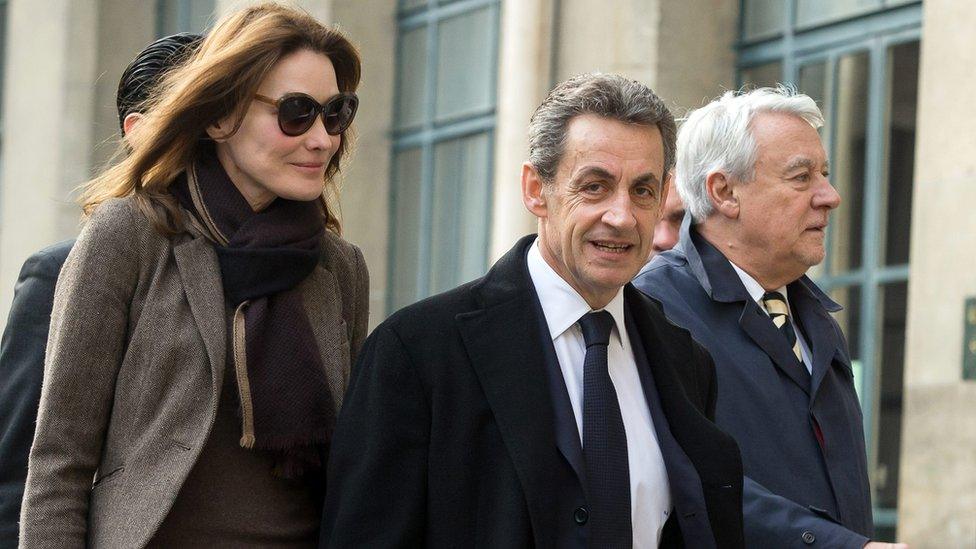
Former President Nicolas Sarkozy (C) leads the centre-right Republicans
Political commentator Alexandre Lemarie says that "the scenario so dreaded by the chairman of the Republican party has actually happened: his party has been overtaken by the Front National in the first round of the regional elections, external".
He adds that the FN has capitalised on the 13 November terror attacks in Paris, which allowed it "to siphon off part of the Republicans' traditional electorate", and that Mr Sarkozy showed himself unable to head off this danger.
"Despite his warnings against the 'dangerous disorders' that would be triggered by the FN victories, the former head of state failed to mobilise voters beyond his own camp."
"No. 1 danger"
Writing in left-leaning La Liberation, Dominique Albertini sees the FN as "the No.1 danger for France, external", but clings to the hope that its first-round triumph will not necessarily be repeated in the second round.
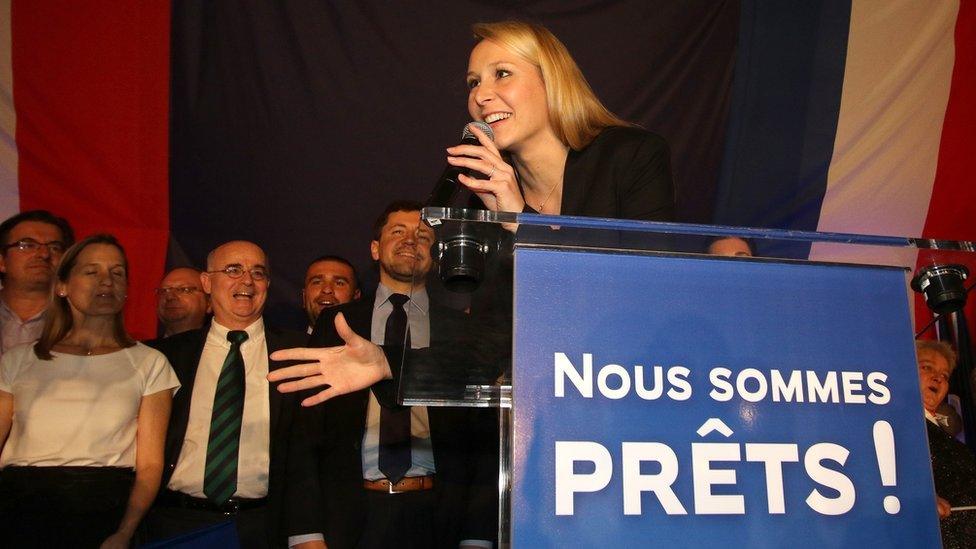
Marion Marechal-Le Pen, niece of FN leader Marine Le Pen, won over 40% of the vote in Provence-Alpes-Cote d'Azur
"For the Front, the hardest part is yet to come," he says, pointing out that in the past, the party has often done well in the first round but stumbled in the second.
"With a turnout that is already higher than the one it had in 2010, especially in areas where it enjoys strong support, it will have to prove that it has not already peaked in the first round."
"Chilling" result
In northern France, the region in which Marine Le Pen herself stood and the FN made a particularly strong showing, one local paper, the Courrier picard, says that the result is an "extreme humiliation" for the established parties but hardly a surprise.
Commentator Mickael Tassart describes the FN's triumph as "chilling" but says it is "a true reflection of the anger of voters in Picardy and the Nord-Pas-de-Calais region., external"
"While the national context benefited Francois Hollande as President of the Republic, whose popularity surged in the wave of emotion that followed the [Paris] attacks, it has not benefited François Hollande as the figurehead of a Socialist ship adrift in a raging storm," he adds.
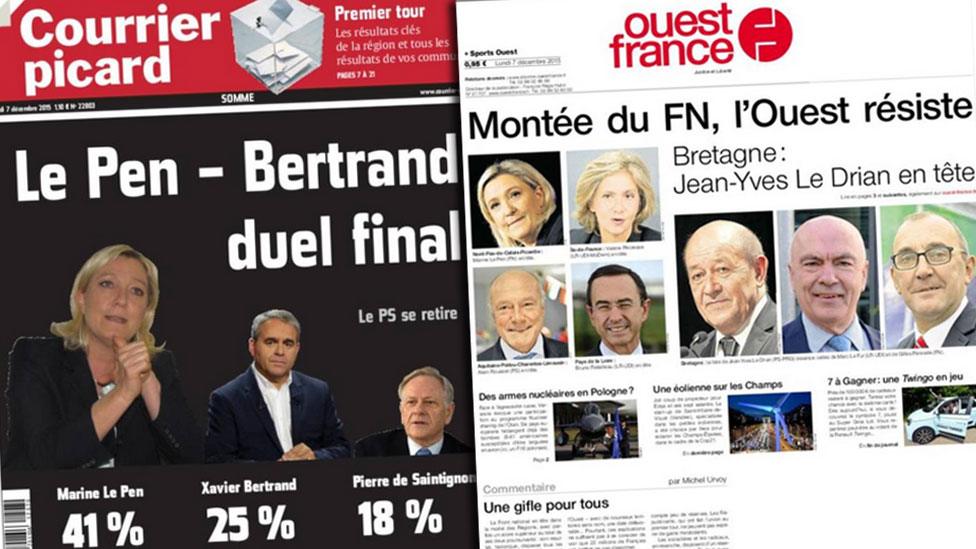
Ouest France's headline notes that 'The West is against the trend'
In western France - one of the few areas in which the FN still appears to be trailing behind the Socialists and the Republicans - the regional paper Ouest-France still sees the result as delivering a slap in the face for the traditional parties.
Ouest France's political commentator, Michel Urvoy, notes that the "historic, external" result has exceeded all expectations, and blames a lack of unity in the Socialist camp for producing yet another election "debacle".
Urvoy concludes that "until now, we reassured ourselves by saying that as the FN had no allies, it could not win an election. The problem... is that today it no longer necessarily needs allies in order to win."
BBC Monitoring reports and analyses news from TV, radio, web and print media around the world. You can follow BBC Monitoring on Twitter, external and Facebook, external.
- Published6 December 2015
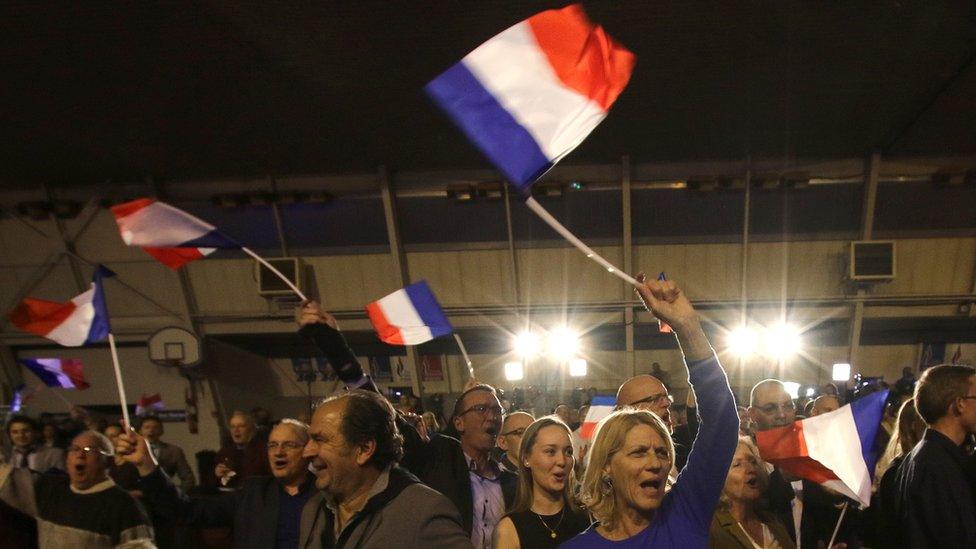
- Published7 December 2015
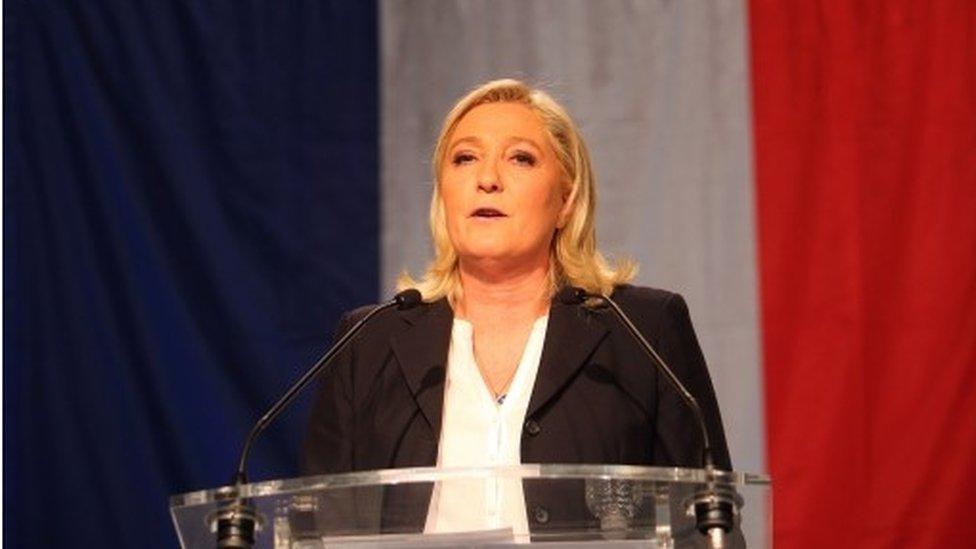
- Published7 December 2015
